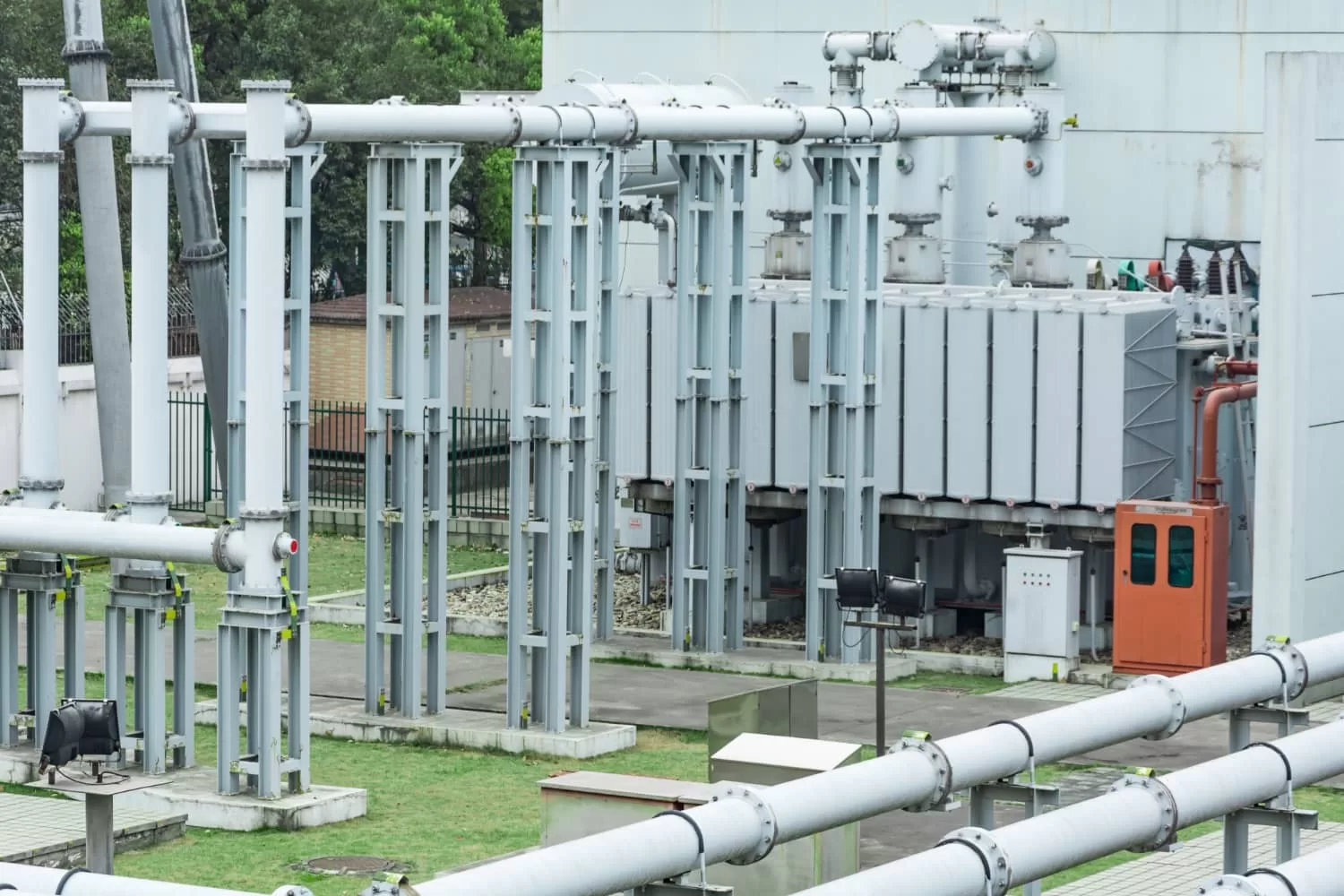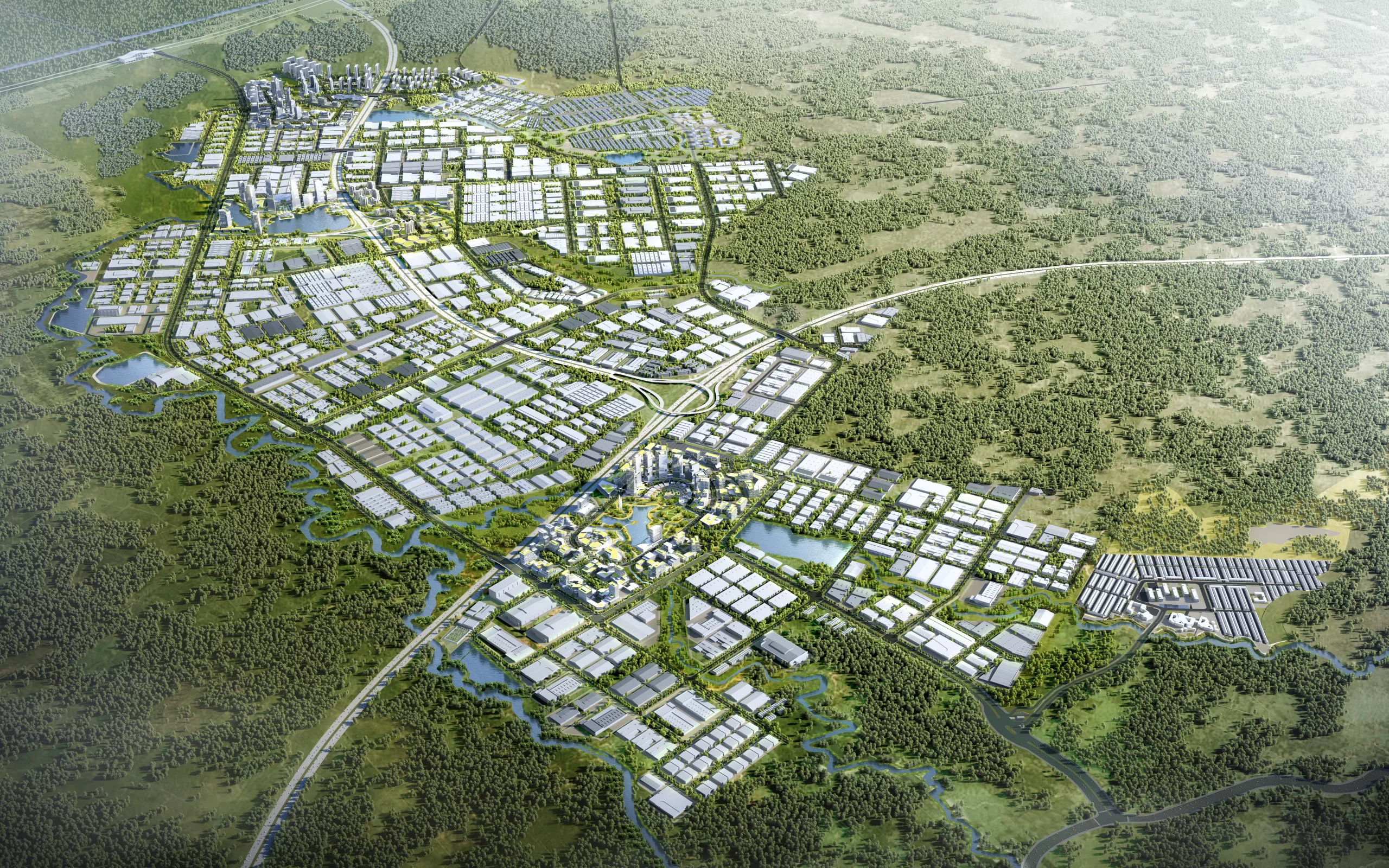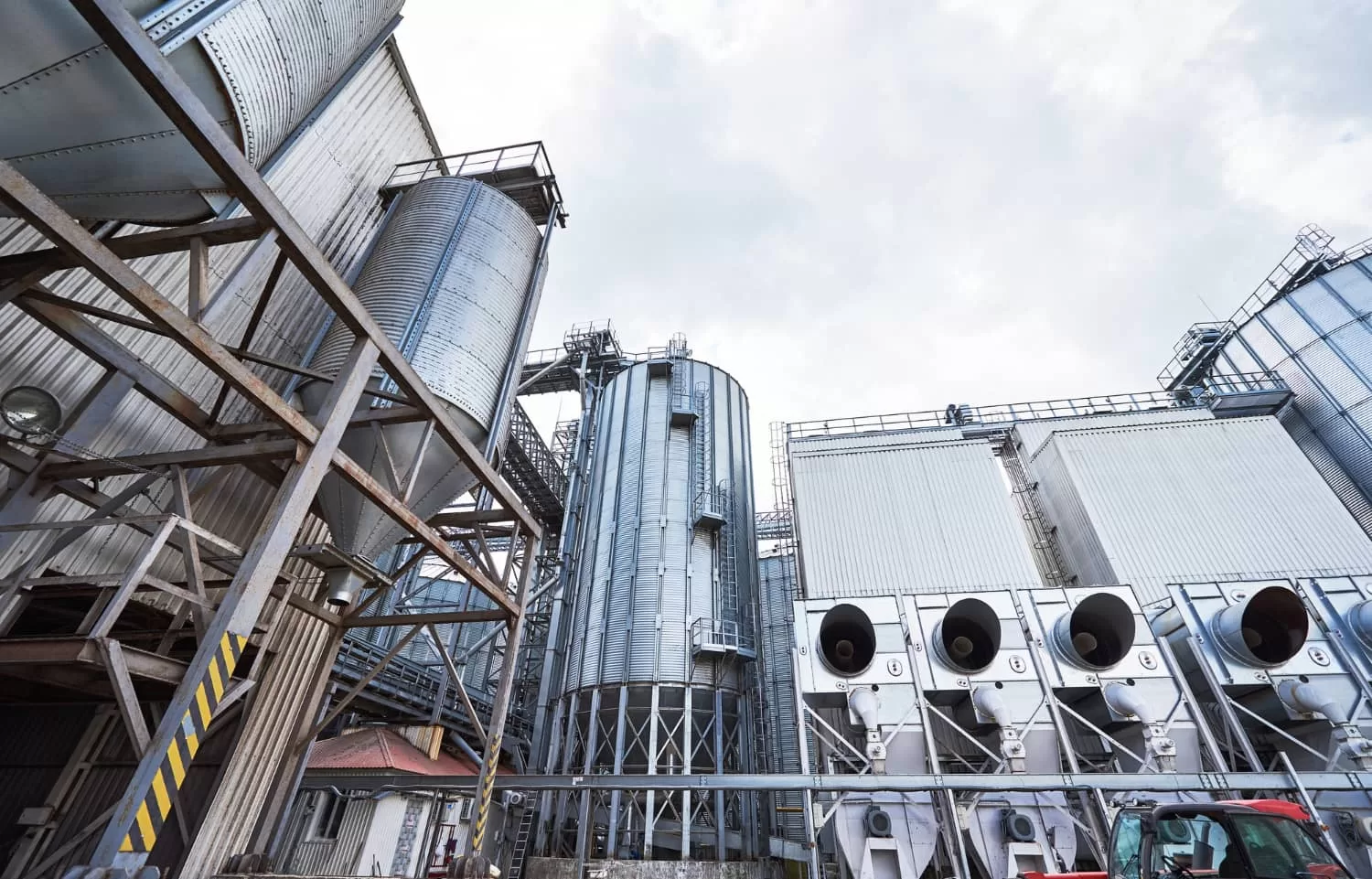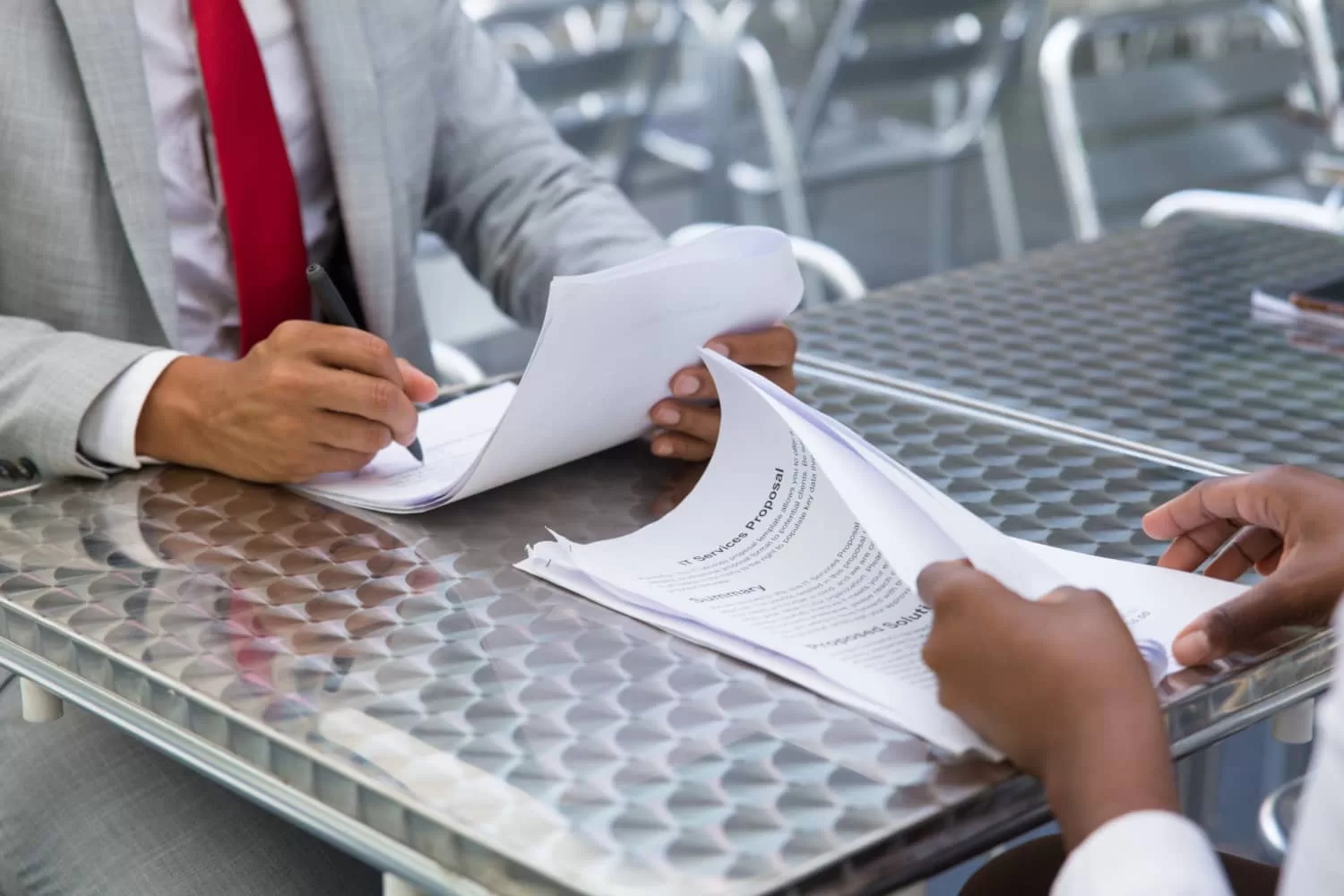Industrial zones play a pivotal role in driving both global and local economic growth by providing businesses with the necessary industry facilities to thrive. From stable power supply to efficient logistics networks, these zones are designed to enhance operational efficiency and sustainability.
With the right infrastructure, companies can reduce costs, optimize production, and comply with regulatory standards. This guide will explore the key industry facilities essential for industrial success and provide insights into the licensing processes that businesses must navigate.
Essential Infrastructure in Industrial Zones for Maximum Efficiency

Industrial zones are designed to provide businesses with a fully integrated environment that supports large-scale operations. The success of any industrial zone depends on its ability to offer reliable infrastructure, ensuring smooth production flows, cost efficiency, and compliance with industry regulations. Below are the five critical industry facilities of modern industrial zones.
1. Reliable Power Supply
A stable power supply is the lifeblood of industrial zones. Without it, machinery, production lines, and IT systems would be at risk of downtime, causing significant financial losses. Most industrial zones utilize multiple power sources, including:
- National Grid Electricity – Primary power source supplied by the government or private power companies.
- Independent Power Plants (IPPs) – On-site or nearby plants providing additional energy security.
- Renewable Energy Integration – Many zones now incorporate solar or wind energy to reduce carbon footprints.
- Backup Generators & Energy Storage – Essential for preventing disruptions during power outages.
By ensuring uninterrupted power availability, industrial zones help businesses maintain high productivity levels while minimizing operational risks.
2. Sustainable Water Resources
Water is a crucial resource for manufacturing, processing, and cooling systems in industry facilities. Effective water management in industrial zones focuses on:
- Advanced Filtration & Recycling Systems – Reducing water waste through purification and reuse.
- Sustainable Groundwater Management – Preventing depletion of natural water sources.
- Wastewater Treatment Plants – Ensuring compliance with environmental regulations before discharging industrial effluents.
- Smart Water Monitoring Technologies – Using IoT-based sensors to track and optimize water consumption.
By integrating sustainable water management systems, industrial zones support both environmental conservation and long-term business sustainability.
3. Integrated Transportation Infrastructure
A well-developed transportation system is fundamental to efficient industrial operations. Industrial zones are typically equipped with multi-modal transport infrastructure to facilitate seamless movement of goods and personnel, including:
- Highway & Road Networks – Ensuring easy access for trucks and heavy vehicles.
- Railway Connectivity – Lowering logistics costs for bulk transportation.
- Proximity to Airports & Seaports – Facilitating international trade and export-oriented industries.
- In-Zone Logistics Hubs – Warehousing and distribution centers to streamline supply chain efficiency.
Strategic location planning and integrated transportation solutions help businesses minimize logistics costs and improve delivery speed, making industrial zones highly competitive.
4. Advanced Waste Management Solutions
Effective waste management is a critical component of industrial zones, ensuring environmental protection and regulatory compliance. In Indonesia, the management of industrial waste, particularly hazardous and toxic waste (Limbah B3), is governed by Government Regulation No. 101 of 2014 on Hazardous and Toxic Waste Management.
This regulation mandates that all industries must handle their waste responsibly, covering the entire process from storage and transportation to disposal. Below are the key aspects of compliant waste management in industrial zones:
- Safe Storage Practices – Hazardous waste must be stored in designated containment areas to prevent leakage and contamination. For instance, toxic liquid waste must be kept in airtight, clearly labeled containers that comply with safety standards.
- Licensed Waste Transportation & Treatment – Businesses are required to use certified waste transport services to move hazardous waste to authorized treatment facilities equipped to handle specific waste types safely and effectively.
- Recycling & Resource Recovery — Certain waste materials can be recycled or repurposed, reducing their environmental impact. Examples include processing plastic waste into new products and converting organic waste into alternative fuels.
- Emergency Response & Risk Prevention – Industrial companies are required to have emergency response plans to manage spills, leaks, or accidents that could cause environmental damage.
5. Supportive Ancillary Services
Beyond core infrastructure, ancillary services play a crucial role in supporting business within industrial zones. These include:
- Financial & Banking Services – On-site banks and financial institutions for seamless transactions.
- Technical & Engineering Support – Immediate access to skilled labor and technical expertise.
- Logistics & Supply Chain Services – Dedicated companies managing transportation and distribution.
- Business Support & Administrative Services – Facilitating tax compliance, licensing, and business registration.
These supportive services enhance operational efficiency by allowing businesses to focus on their core competencies while leveraging the ecosystem of industrial zones.
Navigating Licensing Procedures for Industrial Establishments
Establishing an industrial business goes beyond location selection–it requires securing licenses to ensure legal, environmental, and operational compliance. A well-structured process streamlines setup and prevents legal or financial issues. Let’s explore the key steps to obtaining an industrial business license.
1. Pre-application Strategy
Before submitting an industrial license application, businesses must conduct thorough preliminary assessments to ensure compliance with government regulations and sustainability requirements. Key factors to consider include:
- Business Feasibility Study – Conducting a comprehensive market analysis and financial assessment to determine the project’s viability. Authorities often require businesses to present a feasibility report demonstrating economic sustainability.
- Environmental Impact Assessment (EIA/AMDAL) – Industrial operations can have significant environmental impacts, so companies must obtain an Environmental Impact Analysis (AMDAL) in Indonesia or an equivalent assessment in other countries. This document evaluates potential environmental risks and outlines mitigation measures.
- Zoning and Land Use Verification – Businesses must ensure that the selected industrial zone is approved for their operations. Governments often regulate land use based on industry type, environmental concerns, and urban planning guidelines.
- Compliance with Industry Regulations — Different industries require specific permits in addition to a general business license. For example, manufacturing plants may need additional safety and health permits, while chemical industries must comply with hazardous material handling regulations.
By addressing these factors in the pre-application phase, businesses can streamline their licensing process, avoid delays, and ensure compliance with industrial regulations.
2. Step-by-Step Licensing Process
The licensing process varies by country but generally follows a standardized framework to ensure businesses meet all regulatory requirements before commencing operations. Below is a step-by-step breakdown of the process:
Step 1: Business Registration & Legal Entity Formation
- Register the company with the authorized government agency (e.g., BKPM in Indonesia, SEC in the U.S.).
- Obtain a Business Identification Number (NIB), which serves as the official registration for business operations.
Step 2: Land and Zoning Permits
- Secure zoning permits that confirm the designated industrial area is suitable for business operations.
- Obtain a land-use permit if construction or modifications to existing infrastructure are required.
Step 3: Environmental & Safety Permits
- Submit an Environmental Impact Assessment (AMDAL) or a similar sustainability report.
- Obtain Health and safety permits, particularly for industries that use hazardous materials, heavy machinery, or high-risk processes.
Step 4: Industry-Specific Licenses
- Acquire sector-specific licenses (e.g., an Industrial Business Permit/IPI for manufacturing in Indonesia, or a Hazardous Materials License for chemical production).
- Some industries require additional export-import licenses if they deal with international trade.
Step 5: Final Operational Approvals
- Undergo inspections by regulatory bodies to confirm that all conditions and safety measures have been met.
- Once approved, businesses receive their final operating license and can commence full-scale operations.
3. Overcoming Licensing Challenges
The industrial licensing process can be complex, with businesses often encountering challenges that delay approvals. Below are common hurdles and strategies to navigate them effectively:
Regulatory Changes & Compliance Issues
- Problem: Sudden changes in industrial regulations can require businesses to adjust their compliance strategies.
- Solution: Stay informed about government announcements and regulatory changes. Consulting with a legal or compliance expert can help mitigate risks.
Environmental & Community Concerns
- Problem: Industrial projects may face opposition due to environmental impact concerns or resistance from local communities.
- Solution: Engage in community discussions and sustainability initiatives to demonstrate responsible industrial practices. Obtaining an Environmental Impact Analysis (AMDAL) early in the process can also help address regulatory concerns.
Delays in Documentation Processing
- Problem: Bureaucratic procedures and incomplete documentation can cause significant licensing delays.
- Solution: Ensure that all required documents are complete before submission. If available, utilize digital business registration platforms. Many governments now offer online licensing services to streamline approvals.
Zoning & Land Use Conflicts
- Problem: Businesses may unknowingly select a location that does not comply with industrial zoning laws.
- Solution: Before acquiring property, verify zoning classifications and industrial land-use approvals. Consulting local industrial development authorities can prevent costly relocation issues.
By anticipating and proactively addressing these challenges, businesses can efficiently navigate the industrial licensing process, ensuring compliance while maintaining operational momentum.
Spotlight on Subang Smartpolitan: Indonesia’s Future Ready Industrial Zone

Subang Smartpolitan is Indonesia’s next-generation industrial zone, designed for efficiency, connectivity, and sustainability. Strategically located in West Java, it offers seamless access to Kertajati International Airport and Patimban Seaport, making it a prime destination for industrial investments.
Why Subang Smartpolitan?
In addition to being strategically located, this industrial city offers an ecosystem that fosters business growth, innovation, and sustainability. Here’s why it stands out as an ideal investment destination:
- Sustainable Infrastructure — Built with eco-conscious planning, the industrial city prioritizes green energy solutions, sustainable water management, and waste recycling initiatives, helping companies meet global Environmental, Social, and Governance (ESG) standards.
- Comprehensive Industry Facilities – Subang Smartpolitan provides a holistic business ecosystem, with ready-to-use industrial zones, commercial areas, and residential spaces, ensuring that both business operations and workforce needs are well-supported.
- Seamless Connectivity — With direct access to toll roads, railways, seaports, and airports, businesses can optimize transportation efficiency and significantly reduce logistics costs and lead times.
How Subang Smartpolitan Meets Business & Regulatory Needs
Establishing an industrial business requires more than just infrastructure–it demands efficient licensing, regulatory compliance, and seamless operations. Subang Smartpolitan minimizes bureaucratic hurdles by offering a structured, well-planned industrial ecosystem where businesses can operate with ease.
With zoning already optimized for industrial use, companies face fewer land-use restrictions and faster approvals. The city’s commitment to sustainability and infrastructure also ensures that businesses comply with environmental and operational standards, reducing risks associated with licensing delays and regulatory fines.
Furthermore, its integrated industry facilities enhance productivity, making business setup faster, operations smoother, and logistics more cost-efficient. By combining strategic location, modern infrastructure, and a business-friendly environment, Subang Smartploitan is an ideal hub for industrial expansion and long-term success.
Read more: Industrial Logistics Unveiled: Why Location Near Ports and Airports Is Key
Embrace the Future of Industrial Development in Indonesia

The future of industrial growth in Indonesia lies in modern, well-equipped industrial zones that offer efficiency, sustainability, and seamless business operations. As global industries evolve, companies must position themselves in strategic locations that enhance productivity and minimize operational challenges.
Subang Smartpolitan embodies this transformation. With its prime location in West Java, strong connectivity to transport hubs, and eco-conscious infrastructure, it provides an ideal environment for businesses to scale and thrive. Companies that invest in future-ready industrial zones like Subang Smartpolitan gain a competitive edge through optimized logistics, streamlined licensing, and a business-friendly ecosystem.
Subang Smartpolitan is the right choice for businesses seeking growth, efficiency, and long-term sustainability. It is a smart industrial city built for the future. Contact us today to learn more.
FAQ
What industries are suitable for Subang Smartpolitan?
Subang Smartpolitan is ideal for industries requiring modern infrastructure and efficient logistics, such as manufacturing automotive, logistics, high-tech, FMCG, pharmaceuticals, and medical equipment.
What environmental initiatives does Subang Smartpolitan have?
The city integrates green infrastructure, sustainable waste treatment, and low-carbon industrial practices, ensuring environmental compliance.
What transport connections are available at Subang Smartpolitan?
Subang Smartploitan offers direct access to Cipali Toll Road, is close to Kertajati International Airport and Patimban Seaport, and has future railway connectivity for optimized logistics.
Why choose Subang Smartpolitan for your business?
It provides a prime location, sustainable infrastructure, investment assistance by Suryacipta Centre of Information, and seamless logistics access, making it a high-growth industrial hub.
Where is Subang Smartpolitan located?
Located in Subang, West Java, between Jakarta and Bandung, it offers easy access to key economic centers, major highways, airports, and ports.


